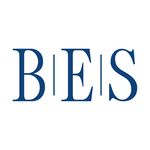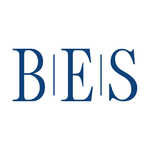NEW YORK–(BUSINESS WIRE)–#Action–Bragar Eagel & Squire, P.C., a nationally recognized stockholder rights law firm, announces that a class action lawsuit has been filed against Syneos Health, Inc. (“Syneos” or the “Company”) (NASDAQ: SYNH) in the United States District Court for the Southern District of New York on behalf of all persons and entities who purchased or otherwise acquired Syneos securities between September 9, 2020 and November 3, 2022, both dates inclusive (the “Class Period”). Investors have until September 25, 2023 to apply to the Court to be appointed as lead plaintiff in the lawsuit.
Click here to participate in the action.
On February 17, 2022, Syneos revealed that its reimbursable expenses would likely never recover to pre-pandemic levels. As a result, Syneos segregated reimbursable expenses from many of its operational metrics, revealing that $3.8 billion of Syneos’ Clinical Solutions backlog (36%) was at risk of never being collected and providing an alarmingly low book-to-bill ratio of just 0.34x in the segment when reimbursable expenses were included. Although Syneos did not disclose the magnitude of the backlog “adjustment,” some analysts estimated that Syneos had eliminated as much as $950 million in prior pass-through revenues.
On this news, the price of Syneos common stock fell nearly 5%.
Then, on August 2, 2022, Syneos revealed substantial deterioration in its business, disclosing that net new business awards within Syneos’ Clinical Solutions segment had declined by roughly 34% including reimbursable expenses and 15% excluding reimbursable expenses, reflecting book-to-bill ratios of 0.94x and 1.29x, respectively. In addition, Syneos disclosed that it would not achieve even its lowered expectations for reimbursable revenues for the year, causing Syneos to slash expected 2022 revenues by $185 million at the midpoint.
On this news, the price of Syneos common stock fell more than 17%.
Thereafter, on September 13, 2022, Syneos disclosed that it expected to announce a book-to bill ratio in its Clinical Solutions segment for the trailing 12 months ending September 30, 2022 in the range of 1.05x to 1.15x, excluding reimbursable expenses.
On this news, the price of Syneos common stock declined nearly 17%.
Subsequently, on November 4, 2022, Syneos revealed that its book-to-bill ratios had plummeted below even the reduced figures provided in September 2022. Specifically, Syneos stated that its Clinical Solutions segment had achieved net new business awards of $182 million including reimbursable expenses – a startling year-over-year decline of 87% – and a book-to-bill ratio of just 0.18x for the quarter, which was just one-tenth of the new business growth expected by some analysts.
On this news, the price of Syneos common stock fell more than 46%, further damaging investors.
As the Syneos class action lawsuit alleges, defendants throughout the Class Period made false and/or misleading statements and/or failed to disclose that: (i) Syneos’ business development capabilities had been materially impaired by workforce reductions and leadership and operational changes, as well as labor force turmoil caused by the COVID-19 pandemic; (ii) Syneos had struggled to integrate recent acquisitions, causing Syneos to suffer from a bloated and confused organizational structure and impairing Syneos’ ability to provide comprehensive or effective customer engagement across its product portfolio; (iii) Syneos was suffering from acute competitive disadvantages as clinical trials moved to remote monitoring and decentralized administration, as Syneos lacked the tools possessed by some of its rivals to successfully run remote and decentralized trials, such as certain data visualization and statistical modeling capabilities, and Syneos had failed to adapt to changing business demands in the wake of the COVID-19 pandemic; (iv) Syneos’ backlog, book-to-bill ratios, and net new business awards had been artificially inflated by more than $500 million through the inclusion of reimbursable expenses that Syneos would never collect; (v) as a result of the above, Syneos was struggling to execute on its existing contracts and to agilely respond to its client needs, causing Syneos to suffer client dissatisfaction across its client base; and (vi) consequently, Syneos was exposed to a material undisclosed risk that Syneos would lose customers, be unable to grow its client base or win significant contract renewals, and cede market share to its rivals.
If you purchased or otherwise acquired Syneos shares and suffered a loss, are a long-term stockholder, have information, would like to learn more about these claims, or have any questions concerning this announcement or your rights or interests with respect to these matters, please contact Brandon Walker or Marion Passmore by email at investigations@bespc.com, telephone at (212) 355-4648, or by filling out this contact form. There is no cost or obligation to you.
About Bragar Eagel & Squire, P.C.:
Bragar Eagel & Squire, P.C. is a nationally recognized law firm with offices in New York, California, and South Carolina. The firm represents individual and institutional investors in commercial, securities, derivative, and other complex litigation in state and federal courts across the country. For more information about the firm, please visit www.bespc.com. Attorney advertising. Prior results do not guarantee similar outcomes.
Contacts
Bragar Eagel & Squire, P.C.
Brandon Walker, Esq.
Marion Passmore, Esq.
(212) 355-4648
investigations@bespc.com
www.bespc.com




